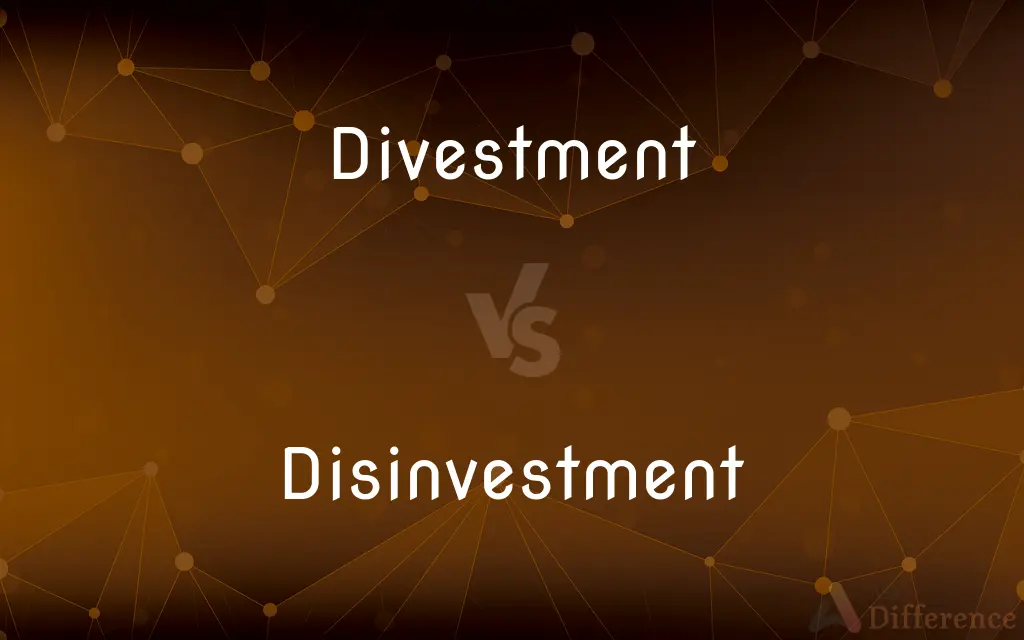Divestment vs. Disinvestment — What's the Difference?

Difference Between Divestment and Disinvestment
ADVERTISEMENT
Compare with Definitions
Divestment
In finance and economics, divestment or divestiture is the reduction of some kind of asset for financial, ethical, or political objectives or sale of an existing business by a firm. A divestment is the opposite of an investment.
Disinvestment
Disinvestment refers to the use of a concerted economic boycott to pressure a government, industry, or company towards a change in policy, or in the case of governments, even regime change. The term was first used in the 1980s, most commonly in the United States, to refer to the use of a concerted economic boycott designed to pressure the government of South Africa into abolishing its policy of apartheid.
Divestment
To strip, as of clothes.
Disinvestment
Withdrawal of capital investment from a company or country.
Divestment
To deprive, as of rights or property; dispossess.
ADVERTISEMENT
Disinvestment
The process of disinvesting; negative investment.
Divestment
To free of; rid
"Most secretive of men, let him at last divest himself of secrets, both his and ours" (Brendan Gill).
Disinvestment
The withdrawal of capital from a country or corporation
Divestment
To sell off or otherwise dispose of (a subsidiary company or an investment).
Divestment
(Law) To devest.
Divestment
(finance) The sale or other disposal of some kind of asset.
The fossil fuel divestment movement is calling on institutions to divest from the companies causing climate change.
Divestment
The act of divesting.
Share Your Discovery

Previous Comparison
Facade vs. Edifice
Next Comparison
Overbearing vs. Overwhelming














































